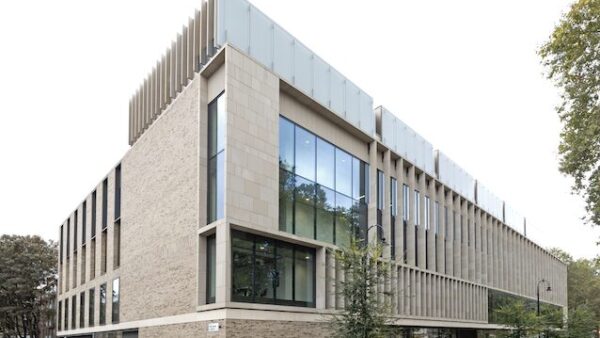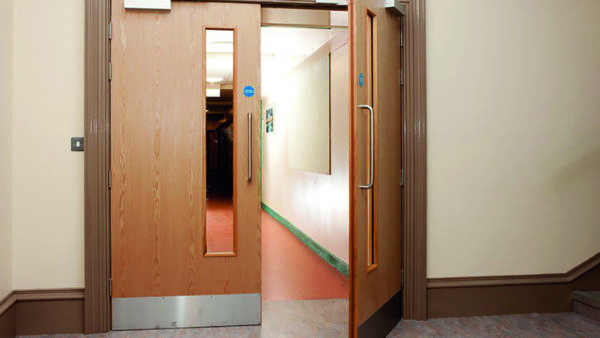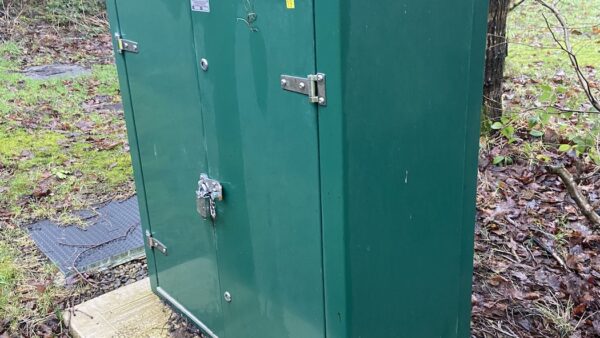Josh Hunt is head of digital marketing for Door Controls Direct. New to the industry he shares his take on AI

I’ve been on a mission to find out how many doors there are in the UK.
It’s not easy to come to any sort of accurate number. So I turned to AI for the answer, and not the Architectural Ironmongery (AI) kind.
I asked ChatGPT to devise a methodology in estimating the number of doors there are in the UK, and whilst I won’t bore you with the details of that methodology, here are the numbers it came back with.
There are 392.5 million doors in the UK.
Approximately 192.5 million are residential.
Whilst approximately 200 million are non-residential.
Regardless of how accurate this estimate is… there are a lot of doors in the UK, which makes this industry a crucial one.
And it is important, not just because of the high number of doors, but because of the function those doors serve… access, safety and security.
Anyway, it’s been eight weeks since I landed at Door Controls Direct in the newly created head of digital marketing position. To mark this early milestone I thought it would be good to pen a few words and deliver a newcomer’s perspective on the industry. A chance to detail my first undiluted thoughts and perceptions before the nuance and traditions of an established industry inevitably begin clouding these naive first impressions of someone looking at this space with fresh eyes.
In truth, on the face of it, this move in my career may appear to be a strange one. Having left the world of big tech marketing after working with some of the largest brands in Silicon Valley over the past seven years, a move into the world of architectural ironmongery (AI) may seem to be an odd leap.
However, here I am, and this industry interests me for a number of important reasons and I believe I’m able to come at it with a unique perspective.
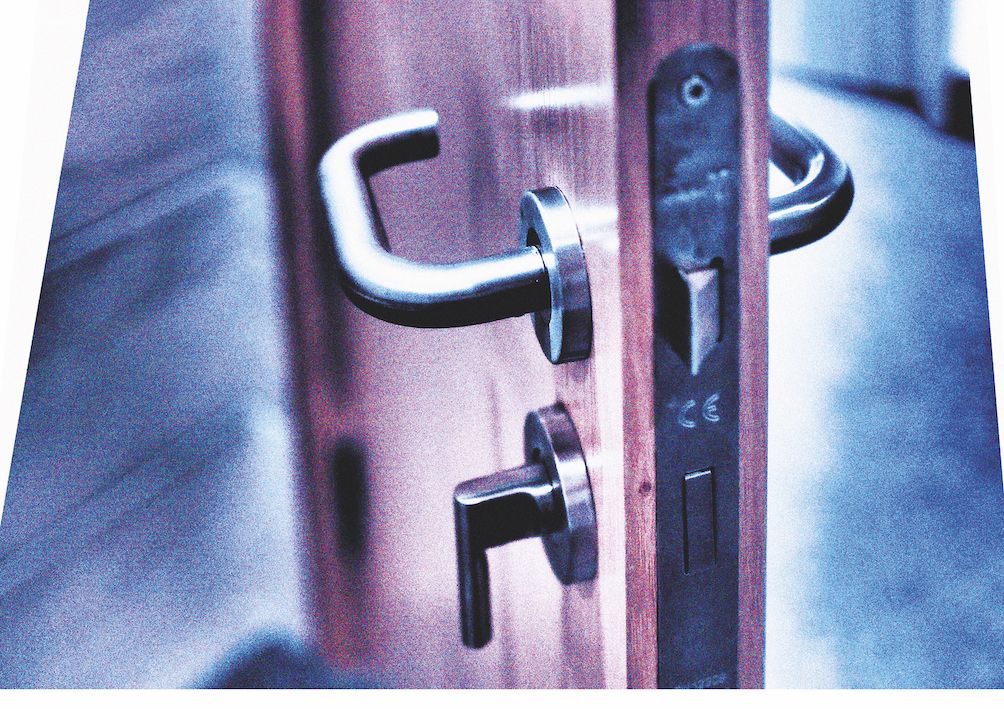
A seismic shift awaits…
After first meeting with Gary Hewitt, our MD, and Mike Trowbridge, our commercial director, this industry has intrigued me enormously.
But why? After all we’re just selling door handles, locks, closers and other “boring” products, aren’t we? How could this be an industry of such interest?
In early conversations it became clear that the AI industry, for the most part, is made up of traditional companies that have been in business for decades, if not centuries. Companies that operate in this space typically work locally and consistent demand for replacement hardware and new builds keeps things ticking over without much fanfare.
However, there are some major catalysts for change on the horizon. Changes that are culturally, socially and politically significant that will have broad and lasting implications for the industry at large.
Ultimately, the world is changing and architectural ironmongery is going to have to change with it.
Grenfell’s legacy
To begin with, Grenfell has brought the subject of fire safety, compliance and regulation to the forefront of the industry, and in 2023 a raft of new fire safety regulations are dropping.
This will ensure a greater level of accountability is placed on responsible persons. It will also increase the level of recording and sharing with enforcement authorities that is required to ensure compliance, as well as updating the fire risk assessment checklist to provide clearer guidance to those responsible.
Just from a door hardware perspective, there’s a major job to be done in the UK. In 2020 the Fire Protection Association published research that stated 76% of fire doors failed inspections in 2019. This is a recipe for disaster and proof that we need to be doing more.
It isn’t just the doors either, the same research found that 63% of buildings inspected ‘had additional fire safety issues’. This is all part of a greater problem across the UK. Our buildings and public infrastructure are in desperate need of modernisation following decades of under-investment and neglect.
Grenfell was the wake-up call. It’s vital our industry responds by taking a leading role in the fire safety conversation to help ensure we never see a repeat of that tragedy again.
The race to net zero
Reducing the carbon footprint of buildings in the UK is going to continue becoming a hotter and more important topic of debate over the coming years. How we improve the efficiency of doors and door hardware is going to be a key part of that discussion.
Whether it’s minimising energy usage in electronic hardware products or improving the efficiency from a heat retention standpoint, it’s important in contributing to ambitions of net zero.
McKinsey have found that construction is currently responsible for 40% of global CO2 emissions, whilst within buildings, heating (and cooking) is responsible for 6% of emissions. So as we form part of such a big contributor to global GHG emissions, it’s important we help reduce said emissions.
Finding a balance of safety, security and sustainability is going to be a challenge going forward and one that we need to tackle head-on.
And it isn’t just in the installation and maintenance of doors and door hardware. We need to look at the whole supply chain of the AI world as we’re in a particularly energy-intensive sector. From extraction and refinement of raw materials through to the delivery of end-user products, we’re looking at a significant carbon footprint that will need to be reduced.
Say hello to smart buildings
Doors are no longer simply a mechanism for access, safety and security. They’re also networked data-gathering devices that form part of the larger technological organism that is the modern smart building.
Modern facilities management is as much about technology as it is about cleaning and general maintenance. Doors and the hardware we install them with play a key part in the technological management of buildings to help ensure efficiency and sustainability.
The AI industry can’t be left behind. it’s important that we keep pace with innovation in other sectors in order to play an important role in the future of high-tech buildings and facilities.
Doors are no longer simply a mechanism for access, safety and security. They’re also networked data-gathering devices that form part of the larger technological organism that is the modern smart building
Retrofitting and repurposing the UK’s buildings
We’re witnessing a generational shift in the UK. We have a top-heavy age demographic profile, our work habits are changing and the housing needs of the population are an issue that’s reaching crisis point.
As a result, buildings are being repurposed to satisfy emerging needs and this presents a wide range of challenges for those tasked with re-developing a premises.
What’s suitable for one use, may not be for another, and as a result, architectural hardware needs will grow as pre-existing hardware will be stripped from buildings.
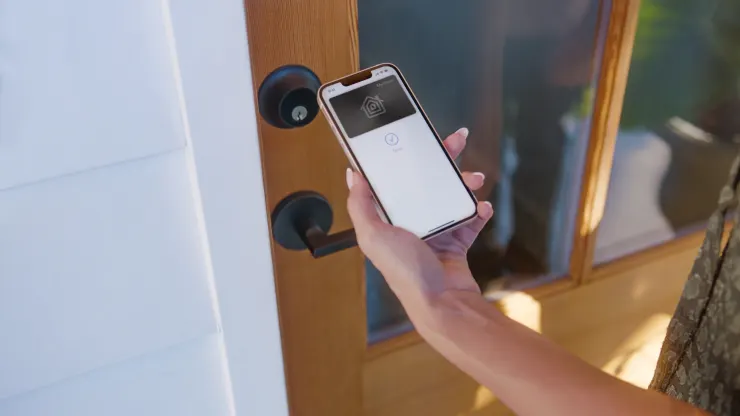
Post-COVID infection control
As we enter a post-pandemic world, questions are being asked of the nation’s pandemic preparedness and what needs to be done to ensure we’re able to mitigate such a crisis from happening again.
Key topics of discussion will be how we’re able to stop the spread of infection through building design and how we’re able to better ventilate areas in order to lessen viral loads in the air we breathe.
The importance of this has already been highlighted by the NHS. In the published document ‘HBN 00-09 Infection control in the built environment’ they state “…the infection prevention and control (IPC) team should be consulted throughout every stage of a capital project and their views taken into account…”
We can expect to see a flood of new regulations as investigations conclude and new building standards emerge. All of this is going to put upward pressure on demand for door hardware in the AI industry.
In conclusion…
It seems to me that the AI industry is a sleeping giant. There are some major catalysts for change, as I’ve highlighted in this article, and any one of which would be a big driver for growth. Collectively, I believe these catalysts represent a massive transformation for the industry.
At present there’s a great deal of fragmentation, a tsunami of regulation and customers crying out for direction and support. We recognise this at Door Controls Direct, and it’s my job as a marketer to help our customers gain better access to our knowledge and guidance. This is something we plan to invest in significantly going forward.
As we begin on the journey of upgrading the UK’s infrastructure towards compliance and sustainability, it’s vital that businesses like ours offer more than just a shop for AI products, it’s important we use our highly qualified expertise to help improve the safety and security of buildings for all.
This is why I joined the company and why I find this space so intriguing. I believe there’s an opportunity for us to make a real difference in providing safe and secure surroundings for the public.
What could be more important than that?




